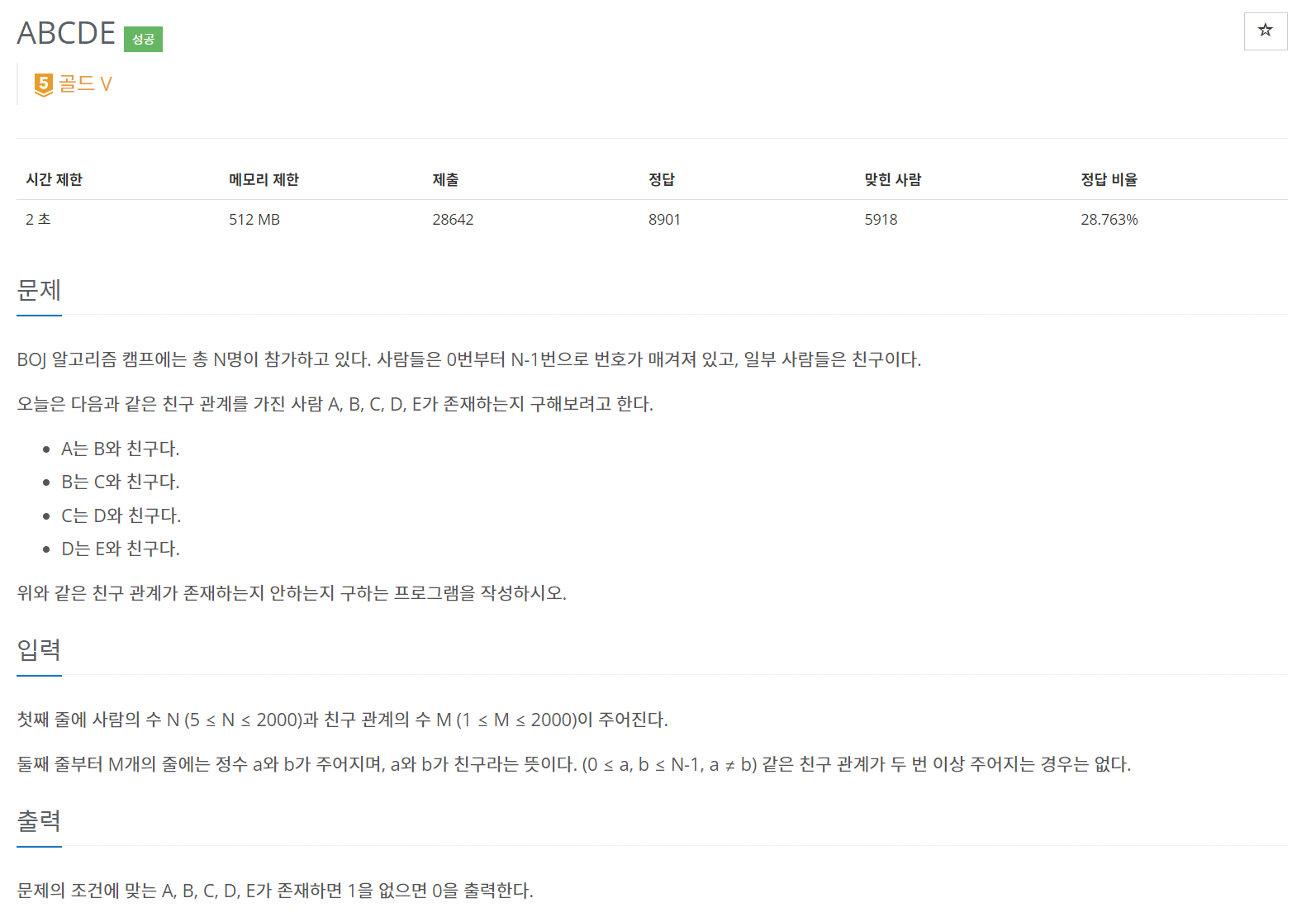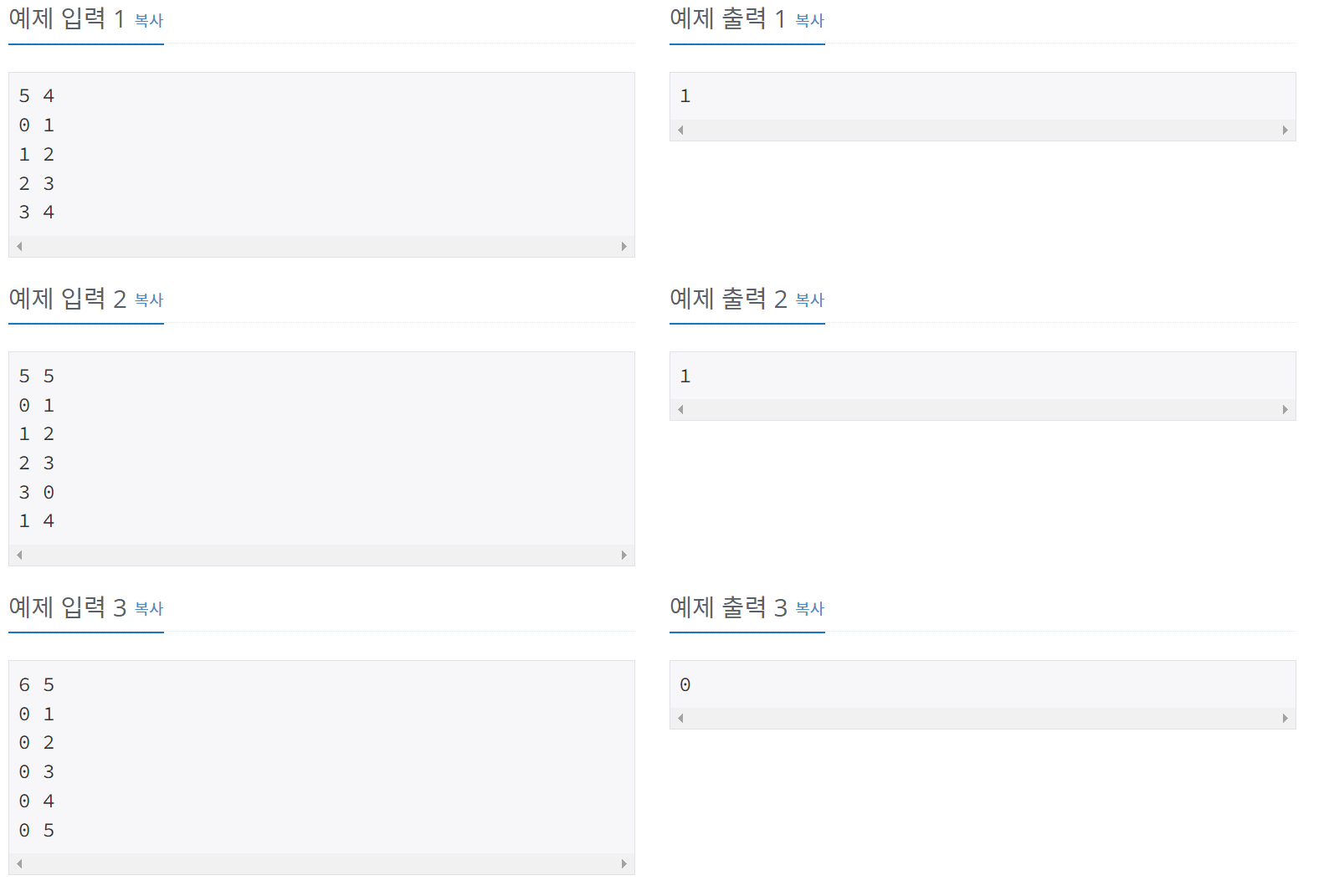

풀이
A - B, B - C, C - D, D - E 관계를 가진 A,B,C,D,E가 존재하는지 알아본다는 것은, DFS에서 A로 시작하여 DFS(B) 호출할 수 있고, B에서 DFS(C), C에서 DFS(D), D에서 DFS(E)를 호출할 수 있는 그래프이다. 즉 DFS(A)부터 탐색의 깊이가 5가 되면 이 조건을 만족할 수 있다. 탐색의 깊이가 5가 되는지 확인하는 방법은 DFS함수의 인자로 depth를 넣고 시작을 1로하여, 재귀 호출을 할 때마다 그 값을 1씩 증가시키고, 이 값이 5가 되면 flag변수 true로 바꿔주면서 문제의 관계가 존재한다는 것을 나타내면 된다.
소스 코드
1
2
3
4
5
6
7
8
9
10
11
12
13
14
15
16
17
18
19
20
21
22
23
24
25
26
27
28
29
30
31
32
33
34
35
36
37
38
39
40
41
42
43
44
45
46
47
48
49
50
51
52
53
54
55
56
57
58
59
60
61
62
63
64
import java.util.*;
import java.io.*;
public class abcde {
static boolean[] visited;
static ArrayList<Integer>[] arr;
static boolean flag = false;
public static void main(String[] args) throws Exception {
BufferedReader br = new BufferedReader(new InputStreamReader(System.in));
StringTokenizer st = new StringTokenizer(br.readLine());
int n = Integer.parseInt(st.nextToken());
int m = Integer.parseInt(st.nextToken());
arr = new ArrayList[n];
visited = new boolean[n];
for (int i = 0; i < n; i++) {
arr[i] = new ArrayList<Integer>();
}
for (int i = 0; i < m; i++) {
st = new StringTokenizer(br.readLine());
int a = Integer.parseInt(st.nextToken());
int b = Integer.parseInt(st.nextToken());
arr[a].add(b);
arr[b].add(a);
}
for (int i = 0; i < n; i++) {
dfs(i, 1);
if (flag) {
break;
}
}
if (flag) {
System.out.println(1);
}
else {
System.out.println(0);
}
}
static void dfs(int v, int depth) {
if (visited[v])
return;
if (depth == 5) {
flag = true;
return;
}
visited[v] = true;
for (int i : arr[v]) {
if (!visited[i]) {
dfs(i, depth+1);
}
}
visited[v] = false;
}
}
태클 감사합니다.
조언 환영입니다.
